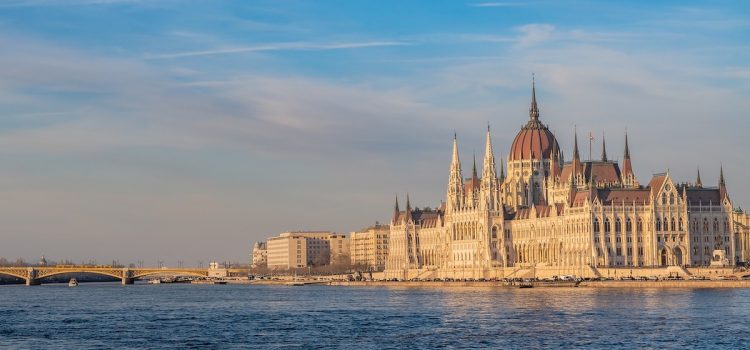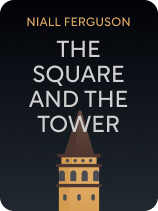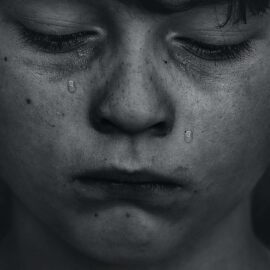

This article is an excerpt from the Shortform book guide to "The Square and the Tower" by Niall Ferguson. Shortform has the world's best summaries and analyses of books you should be reading.
Like this article? Sign up for a free trial here.
What role does hierarchy play in keeping the peace? What impact do totalitarian hierarchies have on people?
In The Square and the Tower, best-selling author and Stanford University historian Niall Ferguson applies network theory—the study of how people and other entities connect with each other—to the study of world history to reveal, among other truths, whether government hierarchies are truly necessary.
Read more to understand world hierarchies through this lens.
World Hierarchies in Peace & War
Ferguson observes that world hierarchies change throughout history and that we can learn about the power they hold by analyzing the corresponding state of society. First, let’s take a step back and see how Ferguson comes into this observation from the perspective of network theory.
Network theory is the study of how people or other entities connect and interact with each other to form networks. It examines how different kinds of networks operate and how they affect the world around them. Ferguson observes that humans seem to have an innate proclivity for connecting with each other and forming networks. This has led to the creation of governments, social clubs, and all the other interpersonal networks that collectively make up human society.
According to Ferguson, a hierarchy is a specific kind of network in which one entity exercises authority over others, who in turn exercise authority over others, and so on, without any other connections of authority or loyalty.
Ferguson contends that peace and social order are possible only when there is a clear hierarchy that everyone accepts as legitimate. In most cases, a government is the hierarchy that maintains order. But, sometimes, alternative entities establish the hierarchy. For example, international treaties often have the effect of creating a hierarchy of national powers: The treaty itself acts as a moderator between nations by establishing agreements and relationships between them, as well as provisions for enforcement, yet without creating an international government, per se.
As evidence that hierarchies are necessary for peace, Ferguson outlines how world hierarchies have changed over the course of history, and he correlates periods of relative peace to times when there was a clear hierarchy and periods of widespread violence to times when there wasn’t.
For example, when the Protestant Reformation of the 1500s undermined people’s faith in the religious and political hierarchy of the Catholic Church, the result was widespread religious conflict and civil war throughout Europe. Similarly, in the 1700s, France went through a series of revolutions. One group after another succeeded in overthrowing a French government that people didn’t perceive as legitimate, only to set up another government that wasn’t widely recognized as legitimate.
In the 1800s, by contrast, Europe enjoyed relative peace under the “pentarchy,” a hierarchy of European nations established by international treaties. Great Britain played the role of “Chief Balancing Power” at the top of the hierarchy, with France, Prussia, Austria, and Russia making up the remainder of the pentarchy and other nations occupying lower tiers in the hierarchy.
But, by the early 1900s, the pentarchy no longer reflected reality. The unification of Germany, changes to the European network of treaties, advances in military and industrial technology, and the growth of some European powers’ colonial empires had changed the balance of power, but it wasn’t clear what the new hierarchy was. In Ferguson’s view, the First World War was the inevitable result of this lack of a clear hierarchy. This is because disagreements between nations are inevitable, and without a mutually respected moderator to resolve them, sooner or later the conflicts will escalate.
After the Second World War, a new global hierarchy emerged. The United States became the main world power and was joined by Russia, China, France, and the UK on the UN Security Council. Ferguson sees the Security Council as a new pentarchy under which other nations in the UN make up the next tier of the global hierarchy. This new hierarchy facilitated a period of relative peace in the Western Hemisphere (the Cold War never turned into an all-out war) that has lasted until the present.
| What Makes a Governmental Hierarchy Legitimate? There are two ways to define governmental legitimacy. “Descriptive” legitimacy is based solely on whether people believe the government is legitimate: If enough people support the government for it to stay in power, it’s legitimate. Ferguson appears to be using the “descriptive” definition of legitimacy. Then there is “normative” legitimacy, which sets forth standard criteria for assessing whether any given government is legitimate. Various political theorists have advanced different standards for assessing normative legitimacy. For example, in The Social Contract, Jean-Jacques Rousseau argues that a legitimate government only forms when members of a society come together as equals and agree to act cooperatively for mutual protection and benefit. As such, he considers governments illegitimate if they prioritize the freedom or welfare of some of their people over others. Although they provide different definitions of legitimacy, normative and descriptive legitimacy are related in that normative standards help us understand people’s reasons for accepting or rejecting a given regime. To delve deeper, let’s apply Rousseau’s normative standard to Ferguson’s examples. The hierarchies of the revolutionary French governments gave some people (like Napoleon) a lot more freedom and power than others, making them illegitimate by Rousseau’s standards. This helps to explain why these hierarchies weren’t more widely accepted: Only those who stood to benefit by supporting the new government gave it their support, and there were enough who didn’t stand to benefit to compromise its legitimacy. The five nations that made up the pentarchy met as equal powers in the 1800s and made treaties for their mutual protection and benefit, making it legitimate by Rousseau’s criteria. But, as Ferguson notes, the balance of power shifted so that by the time of the First World War they no longer saw each other as equals benefiting equally from the treaties that established the pentarchy. That would have eroded its legitimacy by Rousseau’s standard. In the hierarchy of powers established after the Second World War, the nations participating in the UN may not have equal power on the world stage—as the hierarchy that Ferguson describes illustrates—but they equally stand to benefit by cooperating to avoid another global war. So, again, the world hierarchy seems to at least approximate Rousseau’s idea of legitimacy. (However, the recent moves by Russia to expand its empire suggest that it no longer accepts its place within the hierarchy, signaling a potential breakdown in the perceived legitimacy of the established order.) |
Totalitarian Hierarchies Isolate People
Ferguson recounts that the tension between hierarchies and other networks is most evident in totalitarian states, such as Nazi Germany, the Soviet Union, and Communist China. In these regimes, the government hierarchy attempted to control every aspect of life and thus tried to isolate individuals from all other networks.
(Shortform note: Aleksandr Solzhenitsyn provides additional vivid examples of how the Soviet Union isolated citizens from each other in The Gulag Archipelago.)
The government hierarchies in these states controlled people primarily through fear, using brutality and surveillance to instill in everyone the fear of being punished for the mere suspicion of conspiring against the government. This fear of raising suspicion prompted people to avoid having any contact with each other outside official channels. Ironically, the higher up in the government hierarchy you were, the more likely you’d be suspected because you’d be more valuable to a conspiracy if there was one.
(Shortform note: If totalitarian regimes invariably try to consolidate their power by isolating their people, does that mean that isolating people by preventing them from sharing their perspectives leads to totalitarianism? Some authors warn that it does. For example, in Cynical Theories, Helen Pluckrose and James Lindsay express concern over the direction of the contemporary “social justice” movement. They observe that the movement tends to gang up on anyone with a dissenting viewpoint, using threats and social alienation to police people’s language and culture. The authors interpret this as a warning sign that the movement has metamorphosed from a force for good into a dangerous totalitarian initiative.)

———End of Preview———
Like what you just read? Read the rest of the world's best book summary and analysis of Niall Ferguson's "The Square and the Tower" at Shortform.
Here's what you'll find in our full The Square and the Tower summary:
- Why conspiracy theories are often wrong
- Why social media networks stir up more conflict than harmony
- How social networks undermine hierarchies and social order






